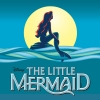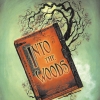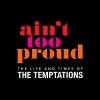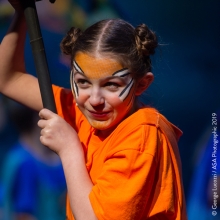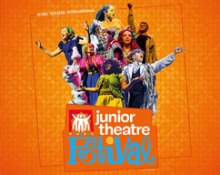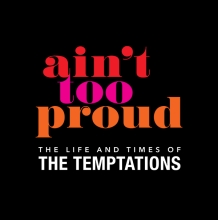Clocking in with 9 to 5's Patricia Resnick: Q&A
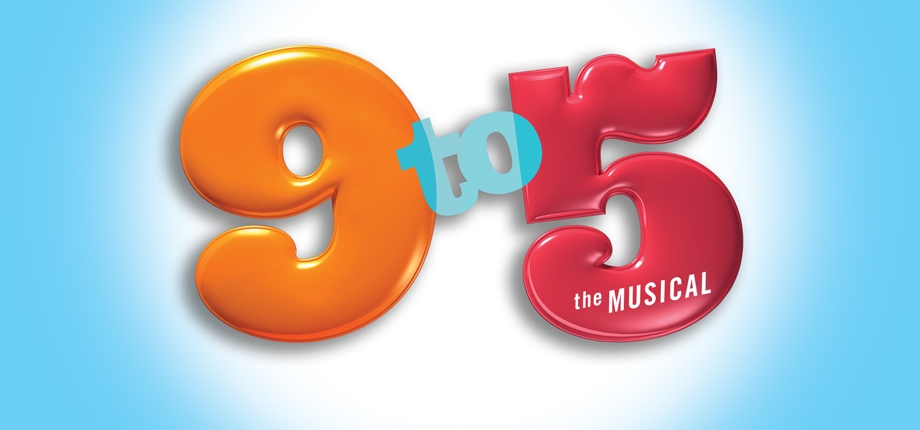
Clocking in with 9 to 5's Patricia Resnick: Q&A
When it opened on Broadway in 2009, 9 to 5 portrayed a time that many thought was long gone. However, now that pay inequality and workplace harassment is at the forefront of national discussion, 9 to 5 has never been more relevant. With a production that has just opened in the West End and a movie sequel in the works, we asked Patricia Resnick, both the screenwriter for the 1980 movie and librettist for the musical, about her long-term relationship with the show and its future.
What has and hasn't changed for women since 9 to 5 came out as a movie?
So much has changed in the corporate world since the movie came out, not just for women but for workers in general and sad to say, most of it isn't for the better. First of all, most people would kill now for a 9 to 5 job. People are expected to work very long hours and to be reachable by text, email, etc. Pretty much 24/7. Benefits and pensions are just about a thing of the past as is job security. Lots of workers are now on permanent temp status which means they don't even have an HR department to take complaints to. And as we all know, thanks to the #MeToo movement, sexual harassment in the office has never gone away.
While adapting 9 to 5 into a musical, what was it like revisiting the script decades after the movie premiered?
The first thing I had to learn was that writing for theatre is very different from writing for film. You can't just cut away from a scene and go right to another one. So for example, bringing on Mr. Hart's office for a scene of just a few lines and then going back to the office bullpen would work in the film but not onstage.
One funny story is how Roz's song "5 to 9" came to be. In the Broadway version, we had a big giant fantasy scene with all three leading women involved. Right after that there was a scene between Violet and Joe in the office the next morning. I went straight from one to the other, but the change of clothing was so fast that one day in rehearsals, Allison Janney's (Violet) skirt slipped to the floor mid scene. Andy Karl, who was playing Joe, quipped, "Ah, I see it's casual Friday." We realized there had to be something in between those two scenes to give Violet a chance to make the change, and a lovelorn song about the time out of the office that Roz is forced to spend away from Hart seemed to be just the thing. I came up with the notion of "5 to 9," and Dolly did the rest.

Resnick with Dolly Parton (Photo via BroadwayWorld)
How did you approach choosing what to keep and what to change for the show?
The biggest decision we had to make was whether to update the show to the present or keep it in the early '80s when it was originally made. Since it's so beloved a movie, and a lot of it reflects the time when it's set, we decided keeping it in the '80s was the way to go. The biggest change we made was giving Violet a love interest in Joe. We gave the relationship a contemporary feel by making the romance between an older woman-younger man. We wanted to have a little romance in the show, it is a musical after all, and when you have the woman who wrote "I Will Always Love You" as your lyricist and composer, how can you not want to give her a chance to write a new love song?
What was it like collaborating with Dolly Parton this time as a librettist with a composer, as opposed to screenwriter and actor?
Working with Dolly Parton in ANY capacity is one of the great joys in life. She's smart, funny, generous and kind. I highly recommend the experience!
Since 9 to 5 closed on Broadway, the #MeToo movement and a call for intersectionality have become strong voices in feminism. What do you envision for the future of feminist theater?
The thing that most amazed me when 9 to 5 was about to open on Broadway was that every single male journalist that interviewed me asked how contemporary audiences would be able to relate to 9 to 5 since all the problems we dealt with in the original had been solved. As a female, I knew that was totally crazy, but it wasn't until #MeToo that the males of the world were alerted to how much of what we decried in the original was still going on. In addition to the ongoing problems with sexual harassment, so much of what Violet, Doralee, and Judy wanted in the office of their time - onsite daycare, flexible hours, job sharing, females at the executive level, still hasn't become a reality in most corporations and offices.
My hope for theatre is the same as my hope for TV and film and all other forms of the arts which is that women will be given equal opportunities to share their voice with the world. I am so very tired of seeing female characters written and directed through the male gaze. We also need more women show-runners, executives, women in starring roles, women in smaller roles, and all sorts of women including women of color and LGBT women.
Word of a 9 to 5 sequel has been circulating. What would you be looking to address in the movie this time around?
The reason I decided to put together a sequel/reboot of 9 to 5 was that for the first time in decades I felt there were new things to say about the world of women in the workplace. First of all, the sequel will be diverse in a way the original wasn't. The characters will include some of the wildly talented POC actresses we are lucky to have today along with our amazing original threesome. I'm writing with Rashida Jones to give the sequel a fresh perspective.
As I said before, things in the office have actually gotten worse for workers. In 1980, secretaries could make a living wage. They were part of the middle class and could look forward to eventually owning their own home, a decent car, a pension and retirement. None of that is true now. Over a third of 20 to 30 year-olds are still living with their parents because they can't afford rent, never mind a home. College grads are saddled with lifelong debt. The trick is to somehow make these points while still being entertaining.
Are there other projects you're looking forward to?
I'm very excited about a new Netflix show I recently co-executive produced based on Armistead Maupin's Tales of the City. It stars Laura Linney, Ellen Page, Olympia Dukakis and many more incredible performers.
We want to thank Pat Resnick for this awesome interview. Now, show everyone who's boss and license 9 to 5 today!
Share
Callboard
-
Did you see our latest news earlier in the week? Chitty flies again! We're thrilled to announce that rights to the full, 2-act version of Chitty Chitty Bang Bang are now available without restrictions for performances scheduled to take place before 31st December 2023. Applications for 2024 are currently restricted to those in venues of less than 500 seats. Apply today! www.mtishows.co.uk/chitty-chitty-bang-bang #chittychittybangbang #newrelease #trulyscrumptious
View on Instagram -
Xanadu is now available for licensing! You have to believe we are magic... Xanadu is a moving, electrifying tale of endless fun that will keep audiences in stitches, while the original, legendary chart-topping tunes lift them out of their seats. Find out more: www.mtishows.co.uk/xanadu #xanadu #newshow #amateurtheatre #licensing #olivianewtonjohn #strangemagic
View on Instagram -
Bravo to everyone at @_spotlight.theatre who went Into the Woods at Nottingham Arts Theatre earlier in the month. These photos look great! Photo credit: Martin Holtom. #intothewoods #nottingham #amateurtheatre #amdram
View on Instagram -
A huge congratulations to everyone at @green_room_productions on their hugely successful production of Sunshine on Leith. We really would have walked 500 miles to grab a ticket. #sunshineonleith #pottersbar #amateurtheatre #wyllyotts
View on Instagram -
As schools across the UK and Europe wind down for the Summer holidays we wanted to take this opportunity to celebrate the incredible teachers everywhere who make musical theatre happen year after year. To those teachers we say: you are an inspiration! We had close to 100 of these incredible teachers take part in this years Junior Theatre Festival, so lets enjoy the special teacher number from that days awards ceremony. #teachers #jtf22 #musicaltheatre #schoolshow #inspiration #education #broadwayjr
View on Instagram -
We love these production shots of Disneys The Little Mermaid JR from @pqanorthampton #merfolk #thelittlemermaidjr #performingarts #disney #broadwayjr
View on Instagram -
Bravo to @curtaincallshrewsbury on their production of Roald Dahls Matilda the Musical JR. Theyre currently having the best time working on the show, and these wonderful photos prove it! Enjoy your final performances. #matildajr #broadwayjr #shrewsbury #roalddahl #youththeatre #maggots
View on Instagram -
WHAT A PICTURE We'll definitely be sticking these in the family album A few snaps from @haslemereplayers dress rehearsal of KIPPS - The New Half a Sixpence Musical which runs at Haslemere Hall this week. Break a leg! #kipps #kippshalfasixpence #haslemere #haslemerehall #surreytheatre #surrey
View on Instagram -
Do you love musicals and want to work at MTI? We're searching for a new Licensing Assistant / Receptionist. The successful candidate will be required to work from our newly refurbished office in London at 12-14 Mortimer Street, W1T 3JJ. The core duties/responsibilities will include: Reception duties: * answering a busy telephone switchboard * greeting all visitors to the office Amateur Licensing support: * show availability requests * answering basic enquiries both via phone and in email * general administrative support as required Professional Licensing support: * general enquiries * generation of invoices as per instructions from the Professional Licensing team * vetting of foreign language translations The successful candidate will have a keen interest in musical theatre (on or off stage) and have excellent administrative skills. For full details visit: https://www.mtishows.co.uk/.../job-vacancy-licensing... #vacancy #licensing #receptionist #job #musicals #opportunity
View on Instagram -
JTF is making the news! @skynews @fyi_skykids came to Birmingham last month to share the power of jazz hands and spirit fingers with a wider audience. The JTF piece will air Saturday at 10:30 and 16:30 and then on Sunday at 10:30. We can't wait! Check out this sneak peak, which follows Timi from The British Theatre Academy. #jtf22 #news #jazzhands #broadwayjr
View on Instagram












